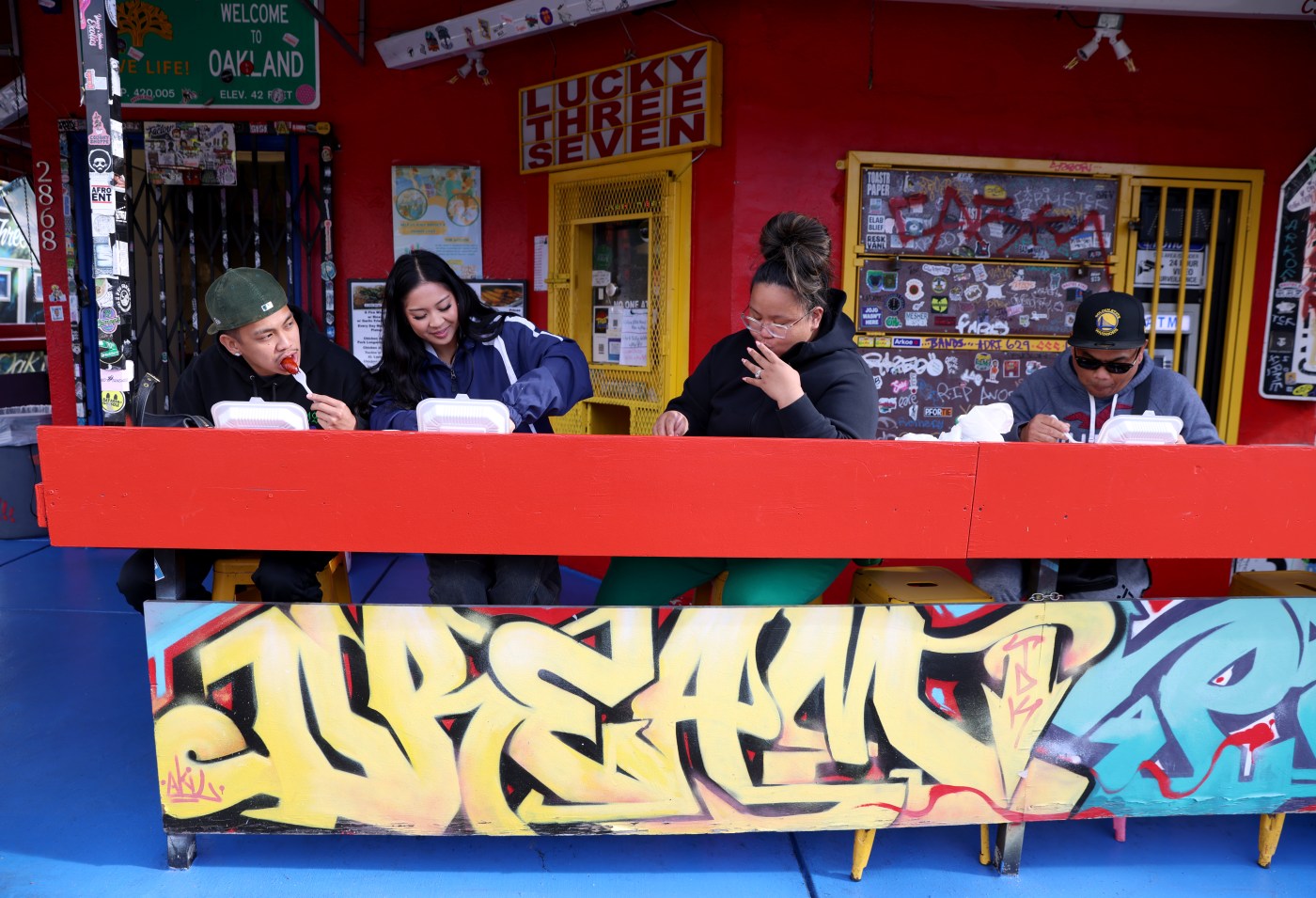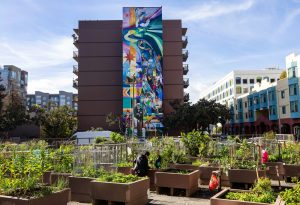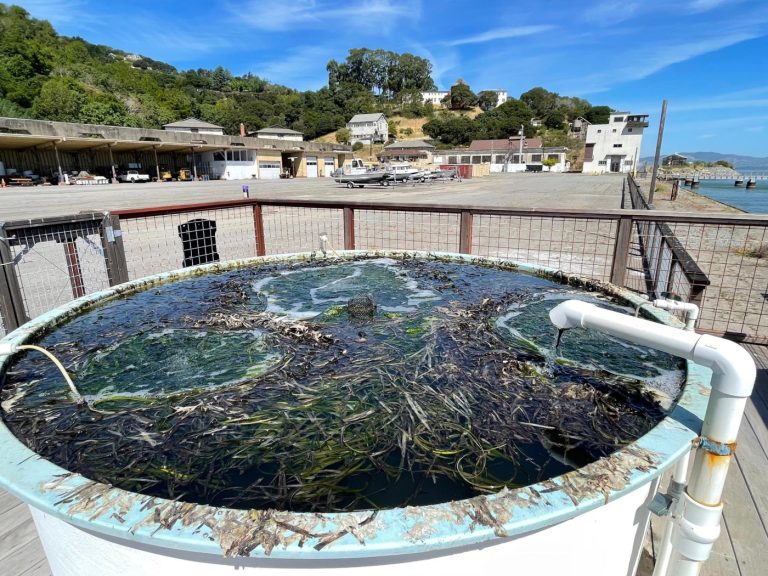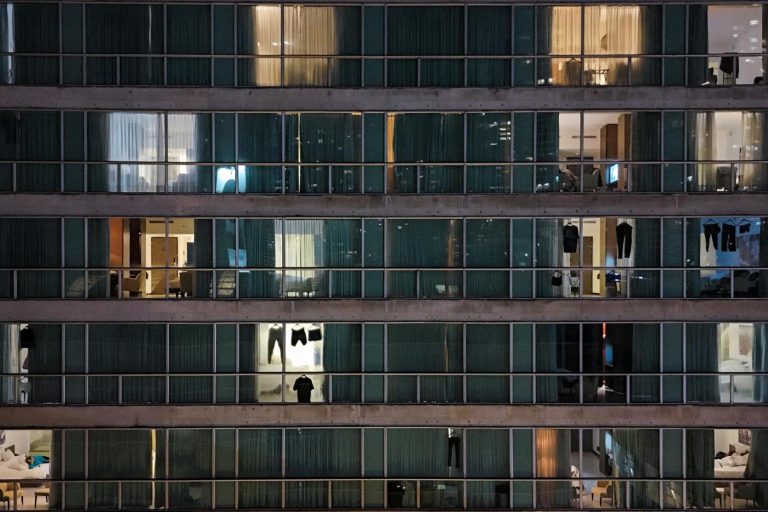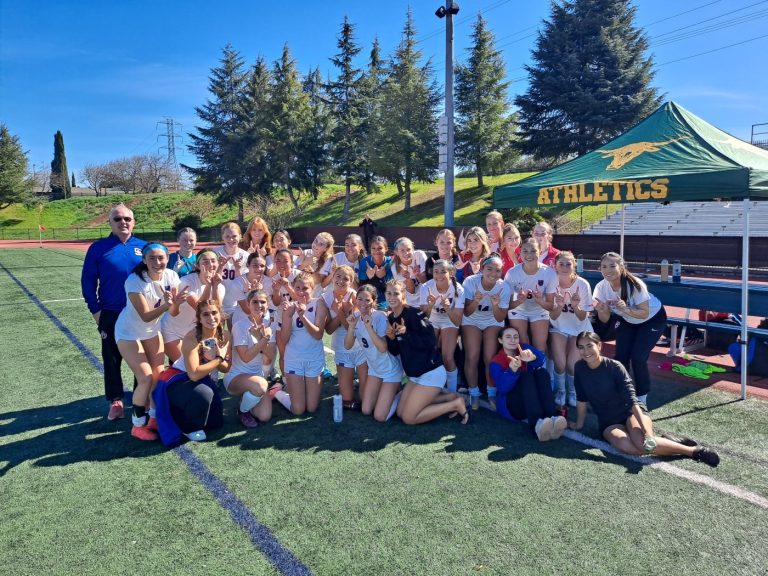San Francisco may be known for its SOMA Pilipinas Cultural Heritage District, but there are Filipino communities – and restaurants and shops and everything else – across the Bay. Here are five ways to explore the Bay Area’s Filipino world.
EAT: G-Fire Wings, adobo and more
Related Articles
Buzzy Cal-Indian restaurant Eylan to open in Melo Park
5 ways to embrace your Italian heritage in the Bay Area
Ax-throwing venue scuttles San Jose plan but restaurants eye space
Loretta, a chic cocktail bar with a Grateful Dead connection, is coming to downtown Menlo Park
Hayward Restaurant Month offers 20-plus meal deals
Lucky Three Seven’s fame has spread far beyond East Oakland, helped by a fan base that includes hometown celebrities such as P-Lo, E-40, Mistah F.A.B. and other Bay Area superstars. Growing up in a family of avid cooks, restaurant owner Mark Legaspi says he was constantly surrounded by the flavors and fragrance of a Filipino kitchen and took inspiration from that. Lucky Three Seven is especially hood-famous for its G-Fire Wings ($6 for three, $18 for nine), a tangy, lightly spicy fried chicken inspired by his grandmother. But you’ll also find Filipino classics such as longanisa, pork adobo, shrimp laing – taro leaves and shrimp stewed in coconut milk and garlic – and “XL” lumpia.
Legaspi and his late cousin, Artgel Fernando “Jun” Anabo Jr., started the business in 2013 and named it after the street their family has lived on for decades – on 37th Street. Anabo and Legaspi helped pave the way for the recent surge of popularity for Filipino cuisine across the East Bay.
“We started the Filipino craze,” Legaspi says.
Lucky Three Seven is a favorite hangout for Alameda-raised Filipino rapper and entrepreneur Dustin Perfetto, better known as Nump, who is also a fan of Union City’s Gerry’s Grill on Courthouse Drive, which features live music three times a week, Jollibee — which has locations from Brentwood and Concord to Milpitas and Daly City — and Concord’s Seafood City, a market and hangout spot.
Details: Lucky Three Seven is open from 11 a.m. to 9 p.m. Tuesday-Sunday at 2868 Fruitvale Ave. in Oakland; https://lucky-three-seven.com.
EAT: Manila-style barbecue and street food
Daly City’s Fil-Am Cuisine has quietly become a beloved destination for Filipino food enthusiasts craving authentic flavors. The unassuming take-out eatery is celebrated for its lutong bahay (homemade-style) barbecue skewers ($3.50 each), reminiscent of the street food stalls in Manila.
“What sets us apart is our pork and chicken barbecue. My husband is the only one who prepares the marinade,” says Venus Alvarado-Guevarra, who has owned the restaurant with her husband, Richard, since 2003.
You’ll find a variety of classic comfort dishes here, including rich beef kaldereta and crispy lumpia Shanghai.
Details: Open from 8 a.m. to 7 p.m. daily at 66 School St., Daly City; www.filamcuisine.com.
EXPLORE: Filipino combat sports and martial arts
Filipino martial arts encompass a broad range of styles and training methods, from stick-fighting – such as escrima and arnis – to sword-style and even a style of Filipino kickboxing called sikaran. Joselito Sering’s Sabong Federation includes different types of Filipino martial arts groups in Oakland, Hayward, San Jose and elsewhere, but Sering notes that martial arts was only part of his cultural journey.
“If the intention is to learn about Filipino culture, follow the food, not the sword,” he says. “If the point is to become a better martial artist, better person, have a community, have an activity that you can enjoy, (martial arts) is a great outlet.”
Filipino Joselito Serring, left, spars with “Kuya” Mike Ecdao, right, during a light-hearted weekend gathering of athletes who regularly practice their craft on a small concrete patch underneath the 280 freeway in San Francisco. (Don Feria for Bay Area News Group)
Nump’s favorite Filipino-owned and operated combat sports gyms include Pleasanton’s The Resistance, where legendary One Championship Muay Thai fighter Eddie “Silky Smooth” Abasolo is an owner – and Nump’s coach. He also likes Pallen’s Gym in San Leandro and Omnimovement in Hercules.
“When people talk a lot about Filipino culture, the martial arts don’t really get a shine,” Nump says. “I think that’s going to be the next viral Filipino wave.”
Details: Learn more about martial arts schools and sparring classes at https://sabongfederation.square.site/. Check out the lineup of muy thai classes and fitness offerings for The Resistance at https://theresistancefc.com/.
Assembling on a small concrete patch underneath the 280 freeway, practitioners of the Filipino martial arts gather from all over the Bay Area to work on their craft at Progress Park in San Francisco. (Don Feria for Bay Area News Group)
PLAY: A skatepark in your pocket
Remember those miniature skateboards you (or your children) “rode” with your fingertips? Kristian Buenconsejo’s Dudr toy company is “rooted in finger boarding,” he says. During the pandemic, Buenconsejo began using a 3-D printer to make miniature and replica-sized skateboards. He started building obstacles, many inspired by the skatepark ramps and obstacles he encountered growing up in Milpitas and the South Bay, to create “a skatepark in my pocket.” Now, he designs, manufactures and sells fingerboarding skate obstacles out of his San Jose home and online at dudrdesigns.myshopify.com.
Pamana Plantas owner Dominick Morales on Tuesday, Nov. 19, 2024, in Berkeley, Calif. Morales sells all kinds of plants, gifts and pots, which decorate her small shop near the Berkeley hills. (Aric Crabb/Bay Area News Group)
SHOP: From succulents to memoirs
The pandemic inspired Dominick Morales, too. The Filipina owner of Pamana Plantas, a specialty plant shop in the Berkeley hills, developed her love for plants during lockdown and opened her shop three years ago. Pamana means “inheritance” – she dedicated the opening of her shop to her late uncle, whom she called Venchito – and the shop is filled with an inheritance of the greenest, most vibrant varieties: succulents, shrubs, small trees, pots and curiosities.
Pamana Plantas owner Dominick Morales on Tuesday, Nov. 19, 2024, in Berkeley, Calif. Morales sells all kinds of plants, gifts and pots, which decorate her small shop near the Berkeley hills. (Aric Crabb/Bay Area News Group)
Morales regularly hosts block parties and workshops aimed at preserving Filipino culture, history and traditions.
The pandemic proved a creative inspiration for Kenneth Tan, as well, who began his Lola X Kenneth memoir project as he sat at his kitchen table in San Jose, surrounded by paintings created by his Lola – his grandmother. Remembering her stories about her life and their family, Tan began drawing her stories, a memoir illustrated by her paintings. Tan’s illustrated memoirs include “Crescenciana” ($50), which tells the story of Tan’s grandmother, and “Tans Interwoven” ($79), detailing Tan’s family’s life.
The books take you through the life of the Tan family – Crescenciana, Olivia, Audrey and Kenneth – from the 1920s to today, from the Philippines to North America. Because, as Tan puts it, “A family is a collection of loose strands. It’s a choice to wind through life together. It’s a challenge to stay tightly knit.”
Kenneth Tan holds a photograph of his grandmother, Crescenciana Tan, taken in the 1940s, at his home in San Jose. (Nhat V. Meyer/Bay Area News Group)
“All these stories of my Lola’s, they only exist orally. It’s an oral history, nothing documented,” Tan says. “I think we live through our stories, and storytelling is a way of honoring everyone who came before us and preparing those who come after us.”
Details: Pamana Plantas is open from noon to 6 p.m. Tuesday-Friday and until 5 p.m. weekends at 1615B Solano Ave. in Berkeley; https://pamanaplantas.com/. Explore the Tan memoirs, prints and other gift items at lolaxkenneth.com.
